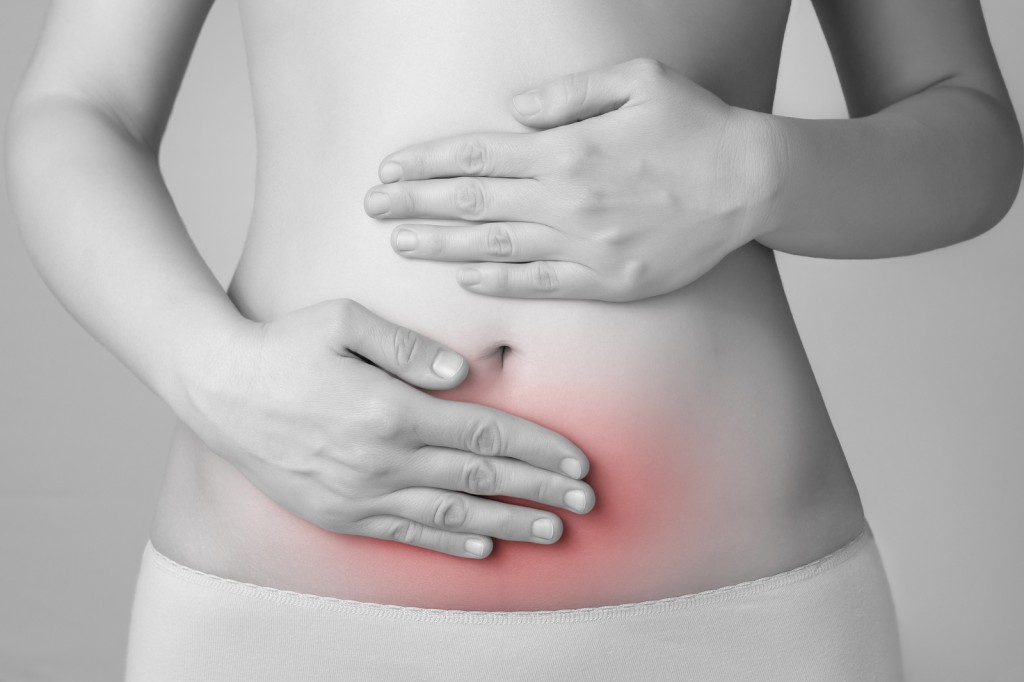- Make It Yourself Lavender Heart-Shaped Bath Bombs!
- 20 Things You Never Knew About “Down There”
- 12 Best Foods For Those Suffering From Arthritis Pain
- 12 Personal Hygiene Mistakes Almost Everyone Makes (Mom Never Told You About #4!)
- 15 Medicinal Plants And Herbs From The Cherokee People
- 12 Mind-Blowing Benefits Of Drinking Coconut Water During Pregnancy
- 12 Outstanding Winter Foods That Won’t Fatten You Up Like A Christmas Turkey
12 Reasons You Feel Bloated Much Of The Time (#7 Is Unbelievable!)

Photo credit: bigstock.com
Feeling bloated much of the time is not a comfortable thing to live with. The good news about it, however, is that it is almost always the result of something that can be treated and not something you have to live with the rest of your life!
Some of the following problems can be tested for at your doctor’s office, others you can simply try the elimination method and see if it works.
Bloating and excessive gas are very common complaints so don’t be embarrassed to speak to your doctor about the problem. He’s most likely heard it dozens of times before.
If you want to avoid bloating and get the root of the problem, keep reading! We have 12 of the most common reasons people feel bloated and uncomfortable and what you can do about it!
1. Hormones
Ladies, did you know that you can suffer from bloating because of the hormonal changes in your body? A little bloating before and after your menstrual cycle is normal. This is because gas and stools pass more slowly through the body during this time of the month. Even post-menopausal women can suffer from bloat. You can’t do much about hormonal changes, but try consuming more probiotics, such as eating more yogurt. This can help the digestive system work at its optimum level.
2. Yeast Overgrowth
Intestinal yeast overgrowth is very common and is generally caused by either frequent or long-term antibiotic use. Antibiotics severely alter the natural balance of good and bad bacteria in the digestive tract by killing everything. This allows yeast to take over the landscape, so to speak. When the body is overrun by yeast, you will be gassy and feel bloated almost all the time. You will also find that you crave sugar or simple carbs, such as pasta or bread, because the yeast is literally screaming at you for more food. Other symptoms of yeast overgrowth are fatigue, brain fog, fungal skin infections, and vaginal yeast infections. Try removing sugar and simple carbs from your diet for a time and rebalance your natural gut flora with probiotics supplements.
3. Irritable Bowel Syndrome
Many people who have constant bloating and gas find that they suffer from a condition called irritable bowel syndrome or IBS. This is a common but long term condition of the digestive tract that often results in diarrhea, constipation, gas, bloating and stomach cramps. Although there is no cure at this time, you can learn ways to manage this condition. Avoid foods that set off this condition (frequently called triggers), limit stress and learn ways to relax, such as yoga or meditation.
4. Food Intolerances
There is a difference between food allergies and food intolerances, although both can cause bloating. Food allergies tend to be more severe in nature, causing swelling of the lips, mouth, tongue, and throat or causing the skin to break out in hives, for example. Food intolerances cause an immune system stress response and inflammation. This acts like an irritant to the intestinal tract, which causes bloating. The most common food intolerances are gluten, dairy, eggs, peanuts, almonds, corn, and some fruits including pineapple, banana, and citrus fruits. Try an elimination diet, removing one food at a time for 2 weeks to see if you can identify the problem. If you cannot, see your doctor for a blood test to determine the problem.
5. Certain Foods
The truth is that no matter how healthy a food might be it can still cause bloating. Some of the worst offenders are probably beans and lentils, which contain a compound called oligosaccharides. This is a type of sugar that our body can only partially digest. Other offenders are cruciferous vegetables such as cabbage, broccoli, Brussels sprouts or cauliflower. These vegetables contain starches which cause gas. Whole grains, although healthy, are high in a type of indigestible fiber which can cause bloating and excessive gas. If one or two certain types of food cause you to feel bloated, or gassy, limit your consumption of these foods.
Continue to Page 2

Photo credit: bigstock.com
6. Gluten Sensitivity or Celiac Disease
Celiac disease is a serious form of gluten intolerance, but many people find that even though they test negative for this disease, they simply cannot digest gluten without feeling bloated, nauseous, and gassy. Wheat has changed considerably over the past 50 or 60 years and the amount we consume has greatly increased as well. If you suspect that gluten might be a problem for you, it is simply to confirm your suspicions. Remove all gluten from your diet for a period of 5 weeks. There are plenty of alternatives to gluten including sweet potatoes, millet, rice, squash, and quinoa. If you find at the end of the 5 week period that you feel better, you most likely have sensitivity to gluten.
7. Intestinal Parasites
American’s don’t like to believe that they can have parasites in this day and age but they are easier to pick up than you might think. This is especially true of people who have traveled to South America, Asia, or Africa. However, it is not only travelers who can pick up parasites. In today’s modern world, where food is flown all over the world, parasites become frequent flyers, infecting people half a world away. Parasite infestations generally get worse over time and often come with other symptoms such as fatigue, loss of appetite, weight loss, and persistent diarrhea. If you believe you might have become infected, see your doctor for a test.
8. Excessive Consumption of Rich, Fatty, or Processed Foods
If you suffer from chronic bloating, chances are pretty good that it is food related. Eating a great deal of rich, fatty foods can cause bloating as fat takes much longer for the body to digest than other foods. This is the reason why fatty foods make you feel fuller for longer periods of time. Processed foods, especially those that contain an artificial sweetener called sorbitol, are well-known gas makers, causing you to feel super bloated after eating them. Limit or avoid fatty foods and processed foods to stop bloat.
9. Insulin Resistance
When you consume sugar or simple carbs, your pancreas releases a hormone called insulin. In a healthy person, insulin triggers the body to use the glucose and fats that are in the blood. When a person is insulin resistant, the cells do not fully respond to the insulin. When this happens, the pancreas releases even more insulin in an attempt to stimulate the cells. This results in high levels of sugar in the blood. If you have a family history of diabetes or if you have recently gained weight and feel tired and/or bloated after eating, you could have insulin resistance. Try removing as much sugar as possible from your diet and focus on eating plenty of vegetables, fruit, fiber, health fats, and protein. If you still feel bloated and tired after eating, speak with your doctor about testing.
10. Irregular Meal Times
One very common cause of bloating is simply eating at irregular times, often called eating on the run. If you go long hours without eating and then gorge yourself, or if you eat a large meal or snack shortly before bedtime, this causes your metabolism and digestion to suffer. People who skip breakfast and then try to make up for it by eating a large lunch (especially if it is a fatty meal like fast food burgers and fries) almost always have bloating for hours afterwards. Our bodies work best when we eat at regular times.
11. Eating Quickly and/or Overeating
This one is so obvious and one your mother probably nagged you about as a kid but it is still the #1 reason people experience bloating: eating too quickly and/or overeating. If you eat too much, your body struggles to digest it. Eating too fast often means we gulp large quantities of air. Slow down and chew your food thoroughly. You should also slow down to avoid overeating. Your brain takes about 20 minutes to get the signal that your stomach is full.
12. Deficiency of Digestive Enzymes
When we chew our food, this action stimulates the pancreas to produce digestive enzymes. This helps to break down the food into forms that the body can use. For some people, the body does not produce sufficient amounts of these enzymes to properly digest the meal. This means that food can remain in the gut for long periods of time and ferment, causing gas and bloating. One common type of enzyme deficiency that many people are aware of is lactose intolerance. Some people simply lack the enzyme to digest the sugar that occurs naturally in milk. A temporary solution to see if this may be true for you is to take a digestive enzyme with your meals.
READ ALSO: Top Anti-Bloating Food and Drinks: You Can Have a Flatter Tummy Tonight!
In very rare cases, excessive gas and bloating is the symptom of a much more serious health problem. If you feel as if you have tried everything, see your doctor so they can test you for Crohn’s disease, ulcerative colitis, inflammatory bowel disease, or colon cancer. These conditions are usually accompanied by other symptoms, such as blood in the stool, but if you have any doubts, please see your doctor for a proper diagnosis.
References:

































